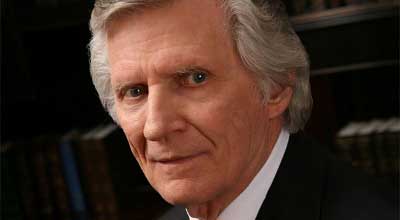This article was originally published in the October 1999 issue of Charisma.
In a sermon preached six months ago and circulated widely on cassette tapes, New York pastor David Wilkerson blasts prosperity doctrines, “holy laughter” and the flamboyance of evangelist Benny Hinn.
In Wilkerson’s April 11 sermon, titled “Reproach of the Solemn Assembly,” Wilkerson warned his 7,000-member Times Square Church to burn books written by any propagators of these doctrines. He also told his parishioners to stay away from evangelist Rodney Howard-Browne’s Good News New York (GNNY) crusade that ran from July 7 to Aug. 14. The GNNY campaign reported more than 48,000 decisions for Christ, the majority of them first-time salvations.
In his sermon, Wilkerson leveled blasphemy charges at the prosperity doctrines of Bible teacher Kenneth Copeland, with one mention of Word-Faith preacher Kenneth Hagin Sr. “It’s an American gospel invented and spread by rich American evangelists and pastors,” Wilkerson said.
Wilkerson described how one of the speakers at a Copeland conference bragged about owning a $15,000 dog, a $32,000 ring and was selling his 8,000 square-foot house to buy a larger home. Wilkerson says he takes issue with the notion that “the Holy Spirit cannot be poured out until you first are in the money flow.”
Wilkerson also attacked manifestations common to modern revivals. “I weep when I see these videos that are sent to me from all over the country. Whole groups of bodies jerking out of control, falling on the floor, laughing hysterically, staggering around like drunkards,” Wilkerson said. “Anything that cannot be found in Scripture has to be rejected outright—totally rejected.”
He listed Hinn and Howard-Browne as examples of those who have perpetrated misrepresentations of the Holy Spirit’s manifestations.
At the close of GNNY, Howard-Browne declined to respond directly to the criticism. “I have been thoroughly blessed by the ministry of David Wilkerson,” Howard-Browne told Charisma. “He is an awesome man, used mightily of God.”
Howard-Browne does not use the term “holy laughter” to describe the laughing that often occurs in his meetings. He says it is the same joy that erupted when the early disciples appeared to be drunk on the day of Pentecost.














































